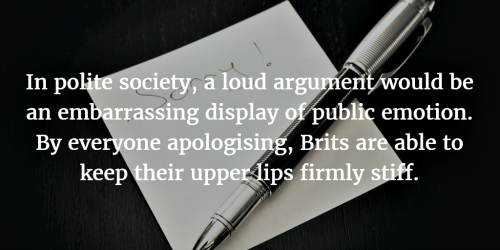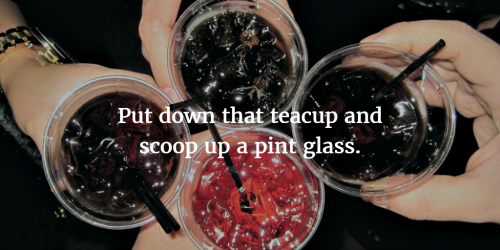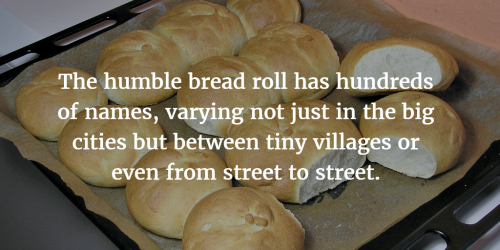An Irishman once said ‘the reason the sun never sets on the British Empire is… God would never trust them in the dark.’
Whether this Irishman was reporting the entire British people or untrustworthy or utterly inept isn’t clear from this quote. But it is clear that for many new arrivals to the Green and Pleasant Land, Brits are certainly a strange bunch.At first things seem rather familiar, especially if you come from an English-speaking nation. Blighty’s shores are awash with international brands, her traditions depicted on the silver screen and her celebrities grace billboards worldwide. But after a few hours, you’re bound to notice things are not quite the same as at home.
Americans frequently wonder at the NHS offering free healthcare, treating everything from acne to heart attacks without costing the patient a single penny. Australians are astounded that alcohol can be bought in convenience stores, supermarkets, and petrol stations.
The people too will offer an amazing range of idiosyncrasies and contradictions. Brits will greet new arrivals with a smile and a warm handshake, but the British reserve precludes hugs or the sharing of personal details on the first meeting. Then again, raise a few glasses with a Brit and you have a loyal friend for life, even if you can’t remember anything about it the morning after.
British culture is a mad bag of mixed up contradictions, as much Pride and Prejudice as Lock, Stock and Two Smoking Barrels. The country is an exciting place to live, where thousand-year-old traditions thrive alongside cutting-edge technology.
In trying to cope with this assault of the familiar and the decidedly odd, we’ve compiled a list of the 10 most confusing features of life in Britain.
Apologising for everything
Two New Yorkers accidentally bump into each other in the street, an impressive row erupts, each naming the other the bigger imbecile for causing the crash.
Two Londoners collide and they spend a painfully awkward minute grovelling for each other’s forgiveness and competing to take the larger share of the blame.
Brits are trained from a young age to avoid inconveniencing others. The biggest sin a Brit can commit is to actually accept the last biscuit (cookie) when the host offers it. Protocol says the host must offer the guest the snack, but the visitor must politely but resolutely refuse. Consequently, the last biscuit is never actually eaten and it remains a mystery as to what actually happens to all these surplus bakery goods.

As ridiculous as it sounds for the slightest inconvenience to become a matter for the national psyche, it does serve a purpose. In polite society, a loud and public argument would be an embarrassing display of public emotion. By everyone apologising, Brits are able to keep their upper lips firmly stiff. If everyone accepts a small portion of the blame, nobody can be accused of being solely responsible for whatever occurred.
Sarcasm
Britain is proud of its comedians, from Mr Bean and Monty Python to Noel Coward, Ricky Gervais and Sacha Baron Cohen. Whether it be sparklingly dry wit or surreal silliness, the British people love to laugh.
Of course, the nation’s reserved attitude prevents its citizens from enjoying themselves too overtly, giving rise to a unique form of humour: sarcasm.
As previously mentioned, Brits avoid direct confrontation, usually by being far too nice. But even when they feel the need to make a snarky remark, they veil it in nicety and politeness.
Sarcasm pops up in other cultures, but Brits especially love it as a way of delivering withering put-downs with a friendly smile on their faces. As one American student told The Guardian, it can take some time for expats to realise they are being teased, “I’d have to ask “Are you being sarcastic, or not?” and it took about four months before I was able to be cheeky in my comebacks.”
No tumble driers
To most of the world 50 Shades of Grey was a bestselling erotic novel; to the UK it was simply the weather forecast.
Brits complain about any variation in the climate, but in reality England in particular never gets very hot or very cold. Consequently, it is unprepared for any variations from the norm, nowhere has effective air conditioning in summer, nor are there snowploughs to clear the roads in winter.
More frustratingly, British homes rarely come equipped with driers for clothes. Instead, residents hang their clothes outside on lengths of string, hoping the weather eventually warms enough to dry the garments. This means your first meeting with your new neighbour may be preceded by seeing their underwear fluttering like a proud lingerie flag.
Of course, with such dismal weather most homes are festooned with damp clothing, hanging off any surface slightly warmer than the surrounding damp air.
Driving on the other side of the road
British cars drive on the left-hand side of the road.
A simple change that can cause confusion for visitors, the difference can be potentially lethal for drivers and pedestrians alike. A Texan living in southern England, Jessica writes on her blog theflyawayamerican.com. She reports several near misses whilst attempting to cross British roads; “I hope that the people of my town never get tired of honking at the American who can’t remember which way the cars drive, I’d hate for something so embarrassingly awkward to go on my epitaph.”
In times of old, travellers on the highways and byways were isolated figures vulnerable to attack from political enemies or plain old robbers. As a consequence, anyone rich enough to own a horse also invested in a nice big sword with which to protect themselves.
From these heavily armed wayfarers we get two traditions. Because gentlemen were taught to swordfight right handed, it made sense to ride on the left, so that the weapon could be wielded in the right hand and any enemies efficiently slain. It was common practice across Europe to ride on the left and be ready to jab pointy bits of metal at oncoming traffic.
Of course, not every approaching traveller warrants a stabbing, so to show they meant no harm, the riders would show their right hands were empty by holding them up. This evolved into that near-universal gesture of greeting, the handshake.
So why is Britain now the odd country out? Well, she isn’t. Dozens of former Empire and Commonwealth countries hold onto the tradition, with Australia, New Zealand, Fiji, India and South Africa among them.
The origin of the dissent is unclear, but one popular myth is that Europe continued to trot its horses on the left hand side until Napoleon started to fill the roads with his troops. Rather than any practical or symbolic significance, Old Boney ordered the newly conquered peoples to switch sides….because he could. He was simply making it clear who was in charge.
“Alright?”
“Alright?”, “aiite?” or “allreet?” are all common greetings across the UK and all mean the same thing.
‘Are you alright?’ is the kind of thing a paramedic may ask someone who looks anything but alright. Instead Brits uses the phrase, and a myriad of variations, as a simple greeting.
Treat it as a ‘hello’, rather than a genuine query after your health and wellbeing. Genevieve Rogis, a Canberra native living in London says: “In Australia, you say ‘howzitgoin’. If you ask someone if they’re alright, it means you’re genuinely concerned for your health. Until I figured out what I was being lost in translation, I thought I looked permanently ill.”
The Royal Family
The Queen appears on every banknote, coin and stamp, whilst the rest of the royal family are plastered all over the newspapers.
Despite the Royal Family being a near everyday presence, most Brits don’t really care. You’ll very rarely find them discussing Prince George’s baby pictures or Prince Harry’s latest misbehaviour.
Whilst born and bred Brits will proudly do acts of derring-do in the face of various enemies for centuries to come, few of them are likely to have the monarch in mind when they do so.
Any encounter with the Royals, their palaces or smartly uniformed guardsmen seem to be an exciting high point for many expats, where Brits would merely shrug.
Swearing
Brits are famed for their polite manners and adherence to strict social protocols. They’ve also got terrible potty mouths.
Don’t be at all surprised to hear a smattering of swear words on TV in the evening. Stronger language is reserved for after 9pm, after which even the strongest curse words can be liberally scripted.
It’s not just on TV that the air turns blue. Conversations on the street, in the office and at the bar may all have a sprinkling of naughty nouns and alarming adjectives, causing blushes from sensitive expats.
There are rules however, especially in the workplace. Some words may be forbidden while others are used frequently, and certain people may be known to dislike swearing altogether. Keep your vocabulary clean until you’ve worked out where and when you can let rip with English at its most expressive.
A curious feature of Britishness is the using of insults as terms of endearment. Calling a drinking buddy by an offensive name is often an expression of a strong, loving bond. Using the same phrase to a stranger in the same bar is likely to result in fisticuffs.
Drinking
Put down that teacup and scoop up a pint glass. Britain may be famous for its cuppas, but the nation also has a taste for cold bubbly lagers, wines, spirits and a jolly good ‘knees up’.

Brits drink a lot more than other nations expect them to. Friday is an excuse for a celebration, hitting the pub as soon as the workday is done, starting a weekend of boozy bedlam. If the sun is out they sip cocktails in the park or beer at a barbecue. If the weather is poor, a pint by the fireside in the pub or a warming mulled wine are the tipples of choice.
Brits will open a bottle to celebrate, commiserate or just to pass the time. In a country famed for its reserved nature, a few drinks loosens most of the population up to chat, sing and carouse in ways that just don’t happen without a glass in hand.
Don’t be at all surprised if the work-life balance starts to get blurred. Workmates will invite you to drink together and act in ways that would be unthinkable in the office. For some cultures, this is the absolute antithesis of professional relationships.
There are tee-total Brits who don’t touch a drop of alcohol, but they generally have to tolerate the fact that any social occasion will include booze.
Regional accents
Most expats are drawn to the bright lights of London, but the capital is not the only city in the UK.
Birmingham, Manchester, Liverpool, Cardiff, Edinburgh, Belfast and Newcastle are all bustling metropolises, each with a unique culture and a different accent to be confused by.
Watching British TV shows will convince most audience that there are two accents in the UK, Downton Abbey’s ‘generic posh’ and ‘working class-Cockney’ for anyone not wearing tweed. Britain’s small island is actually a lot more varied than that.
Head to Liverpool and get an earful of Beatles-esque ‘Scouse’, or try to work out what’s being said by ‘Brummies’ in Birmingham or the ‘Geordies’ of Newcastle. It’s not just the pronunciation that changes, whole vocabularies get mixed up.

The humble bread roll (pictured above) has hundreds of names, varying not just in the big cities but between tiny villages or even from street to street. As fluent as you may be in a classroom, the office or the street might see you exposed to an entirely different version of English.
Metric and Imperial
Brits drink beer by the pint, yet buy their groceries in kilograms. They know how long it takes to run 100 metres, but don’t have clue if 100km per hour is that fast or not.
Sitting on the fringes of Europe, Britain valiantly resisted the tide of decimalised currency and the metric system for years. In 1971, the shilling died a death and business transactions got easier. Ever since, Brits have been struggling to convert imperial measurements into metric.
One generation of schoolchildren were taught how many inches went into a foot, the next about centimetres and metres. Neither were taught how to switch between the two. This leaves a confused nation that measures different things in different units.
Small distances are gauged in metric, long distances in miles. Objects are measured in centimetres, people in feet and inches. Food is weighed in kilograms, but people in ‘stone’, an imperial unit that defies explanation. When objects are very heavy they are weighed in imperial ‘tons’ or the slightly lighter metric ‘tonnes’, confusing everyone.
Just remember that road signs are all marked in miles. So the speed limit is marked in miles per hour, but your sat nav may be preset to give directions in kilometres.
Honestly, this confuses Brits too, so just stay baffled and you’ll fit right in.
What did you find confusing when you first moved to the UK? Let us know in the comments!
Article by Andy Scofield, Expat Focus International Features Writer


